Alain Aspect awarded 2022 Nobel Prize in Physics
Congratulations to Professor Alain Aspect for winning the Nobel Prize in Physics!
Professor Aspect has been a member of EQUS’ Scientific Advisory Committee since EQUS’ founding in 2011. He was awarded the 2022 Nobel Prize in Physics, along with John Clauser in the USA and Anton Zeilinger in Austria, for experiments with entangled photons, establishing the violation of Bell inequalities and pioneering quantum information science.
EQUS Director Andrew White said that entanglement is at the heart of EQUS’ quest to build quantum machines.
“Entanglement has the same role in quantum technologies as does heat in an engine or electricity in a light bulb,” he said.
“Alain showed that entanglement between two photons persists even if the orientation of the polarisers that analyses the photons is changed during the photons’ flight.
“This means that nature defies description in terms of a local (that is, light-speed-limited) ‘hidden variable’ theory.”
Hidden-variable theories are useful in physics, with one such example being thermodynamics.
“Thermodynamics hides the velocities of trillions of individual atoms behind a theory with only a handful of parameters, such as pressure, volume and temperature,” Professor White said.
“Einstein felt that quantum theory must also be a hidden-variable theory, and of course follow the limitations of relativity in having no aspects faster than the speed of light.
“What Aspect, Caluser and Zeilinger’s work shows is that Einstein was incorrect—nature is inherently non-local, non-realist or both, and we need to understand its rules to engineer the quantum technologies of the future.”
Major funding support

The Australian Research Council Centre of Excellence for Engineered Quantum Systems (EQUS) acknowledges the Traditional Owners of Country throughout Australia and their continuing connection to lands, waters and communities. We pay our respects to Aboriginal and Torres Strait Islander cultures and to Elders past and present.


